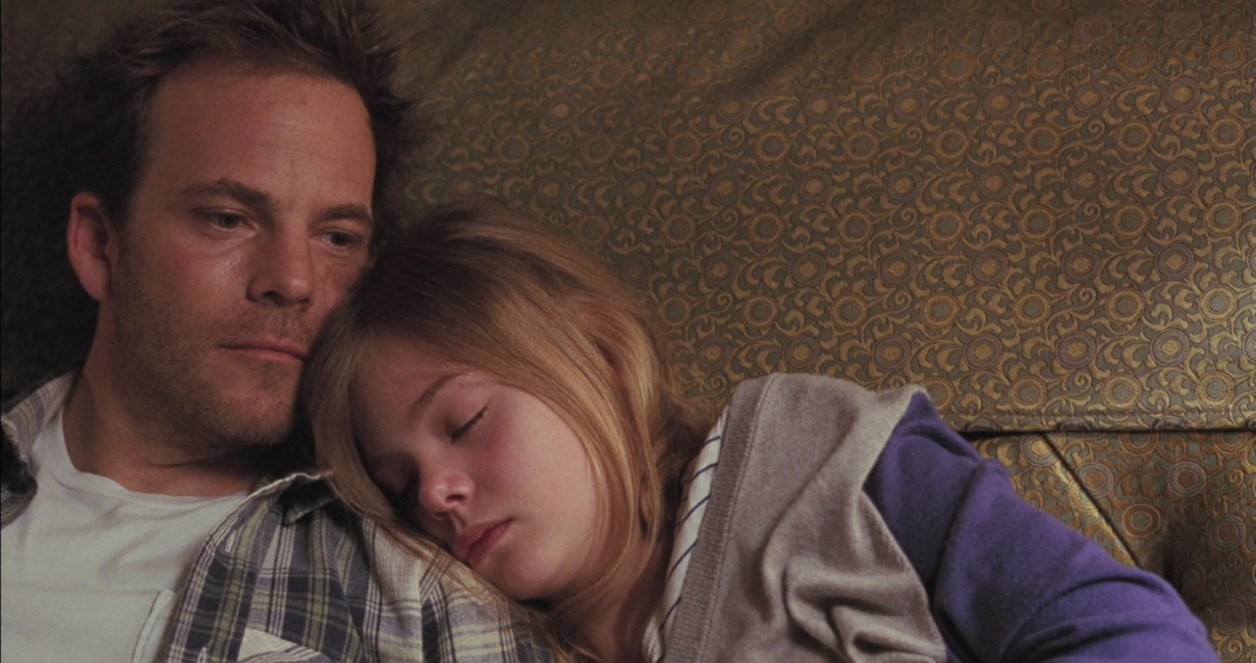
In her 2003 Oscar award winning Lost in Translation, director Sofia Coppola managed a heartbreaking and realistic portrayal of postmodern discontent and isolation. Her latest release, Somewhere, merits a direct comparison with her earlier masterpiece, for it too manages to capture the essence of loneliness, alienation and ennui.
Stephen Dorff and Elle Fanning star in this slow-paced, somewhat emotionally void film that, despite its flaws, is touching precisely because it manages to inspire in the audience a sense of the very listlessness that it depicts.
Centering on the life of Johnny Marco, a privileged and laconic Hollywood star, Somewhere is a painful exploration of the underlying emptiness of one man’s life.
From the first frames–in which Johnny races his Ferrari repeatedly around a track-it is clear to us that Johnny Marco’s life is going nowhere. Although this could also be a criticism leveled at the movie itself, the languid and organic development of the narrative has the advantage of utter realism, and it is precisely this realism which often makes Somewhere difficult to watch.
Johnny’s residence at the Chateau Marmont hotel, a blur of parties, breasts and twin strippers has left him feeling empty and unfulfilled. When his ex-wife leaves their eleven-year old daughter, Clio (Fanning), in his charge for an indeterminate time period while she ‘sorts some things out,’ one would presume that his hedonistic lifestyle is disrupted.
A number of superficial and void sexual encounters are only one aspect of Johnny’s seeming inability to connect meaningfully with anyone. There is an almost complete lack of connection or consequence throughout the entire film, giving the impression that despite Johnny’s fame and celebrity, he is in fact a complete non-entity, who, were he to walk out of everyone’s lives, would never be missed.
Stephen Dorff and Elle Fanning’s performances seem almost free-form, like moments accidentally captured on film. They provide a depth to Johnny and Clio’s estranged relationship that reveals simultaneously both their love for each other and the utter lack of understanding between them.
However, their actual scripted moments of ‘connection’ lack this depth. Their father-daughter relationship seems to be more that of friends – they hang out, play video games, tease each other and indulge in late night snacks. Despite the fact that Clio is obviously annoyed by her father’s womanizing habits, they never have any sort of confrontation on this, or any other, issue.
Just like real life, the character change that takes place is minimal and hard to pinpoint. Because of this there are moments in which Somewhere seems entirely lacking in plot, which is both one of its main failings and one of the key aspects of its realism.
Somewhere confirms Sofia Coppola’s status as a distinguished filmmaker in the tradition of Michelangelo Antonioni (the master of ennui). The failings of the film drag it down considerably from the sincerity and ease with which Lost in Translation expressed similar emotions, however it is still a masterful evocation of something we all share in common and yet have difficulty expressing – our overwhelming sense of being ultimately alone.
Somewhere opened last Friday at The Grand Cinema, and will be running through (approximately) February 24th.
